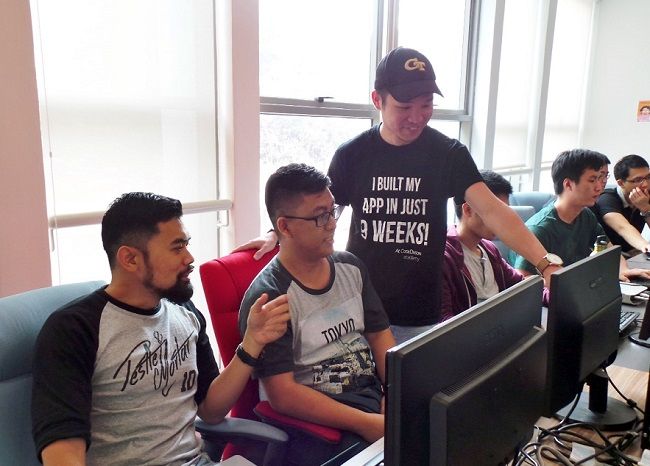The funds will be used to introduce more programmes into its syllabus, roll out a night school, and expand its team and number of locations, according to cofounder and chief executive officer Josh Teng.
“Every government knows bringing more citizens into the tech industry can transform the economy.
“The Malaysian Global Centre for Innovation & Creativity (MaGIC) has helped pilot and proved that the NEXT Academy way of doing it can make the transformation happen at the right speed, while 500 Startups’ funding will help us to do it at a larger scale,” he told Digital News Asia (DNA) via email.
MaGIC is a government agency established in 2014 to boost entrepreneurship in the country, as well as to further develop the startup ecosystem.
Starting out as Code Division back in July 2014 before being renamed to NEXT Academy last August, the coding school has produced over 150 graduates. Its flagship programme is a nine-week bootcamp that teaches people how to build apps.
“Students who join us are typically individuals who want to start their own companies or join tech startups,” said Teng.
“They range from high school leavers to bankers, pharmacists, consultants and more,” he added.
According to Teng, the coding school now has 10 instructors. “When we started out, it was only myself and three senior engineers from GrabTaxi, LoanStreet and VLT Labs,” he said.
“As we grew, we hired some of our exceptional graduates and put them through a training programme so that they could become mentors at NEXT Academy,” he said.
He said that most of the instructors were either NEXT Academy’s own software engineers or freelancers working with startups.
“This ensures that our instructors are not purely academic and have relevant practical experiences to share with our students,” he added.
Teng claimed that NEXT Academy graduates have a 95 per cent employment rate, with many ending up working with a regional startup or multinational company.
“Graduates who have transitioned into working as coders are now in companies such as KFit, MindValley and Manulife,” he said.
What about the 5 per cent ‘who didn’t make it’?
“I wouldn’t say these students made it or didn’t make it. We only measured people who are seeking employment, as there is a good percentage of people looking to start their own companies as well.
“For those who are seeking employment, we measure it by their ability to get a job within three months of graduation.
“Other bootcamps may measure it as within six months of graduation, which would naturally yield a higher percentage,” he argued, adding that the other 5 per cent will “make it eventually.”
Several Next Academy graduates have also founded startups that have subsequently received venture capital funding, like CoinPip and GoGet, according to Teng.
Its graduates also include four of the five members of the Malaysian team that won MasterCard Inc’s Masters of Code global hackathon. — Digital News Asia
* The above article was first published here.






















